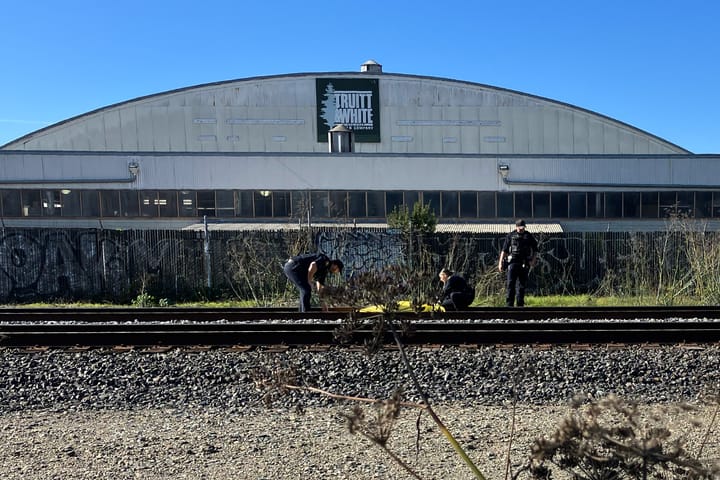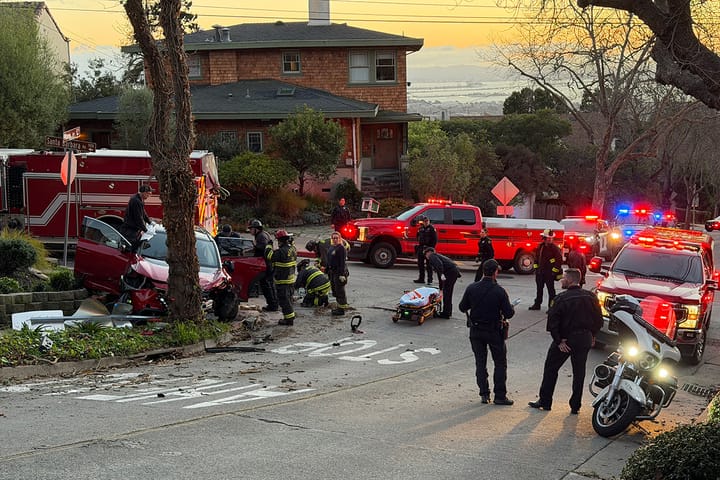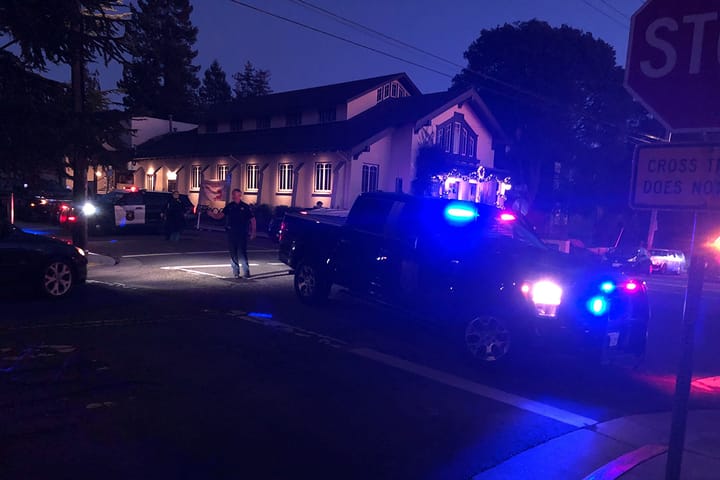Candlelight vigil tonight for Dinh Le: 'He was living his best life'
"He loved walking," his oldest son, Nhan Nguyen Le, said Sunday afternoon. "It's so sad that was what took his life."
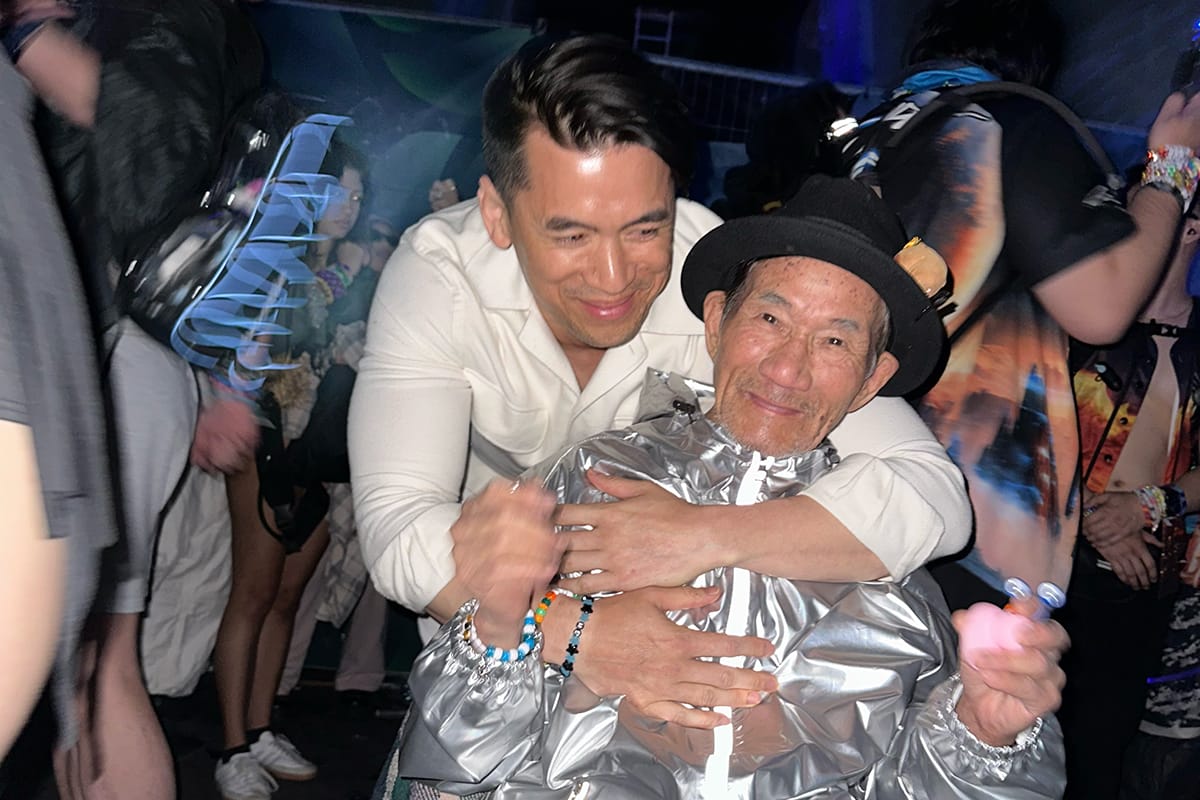
The family of a man who died recently after a driver struck him on his evening walk in Berkeley has organized a candlelight vigil tonight to honor him.
Dinh Le lived just a few blocks from the intersection where a driver struck him Aug. 17, in the Elmwood neighborhood at Derby and Regent streets next to Willard Park.
Le, 80, survived the crash but sustained rib and collarbone fractures. He experienced complications and died at Highland Hospital a week later.
"He loved walking. It was one of the most beautiful parts of his day," his son, Nhan Nguyen Le, said Sunday afternoon. "It's so sad that was what took his life."
Walking was a point of pride for Dinh. He took great pleasure in sharing his daily step count, often 10,000 to 15,000 steps, with his family.
"He walks to get his groceries, he walks to get his exercise, he walks to see his friends," Nhan said. "He walked more than most people do in their 60s. He was living his best life."
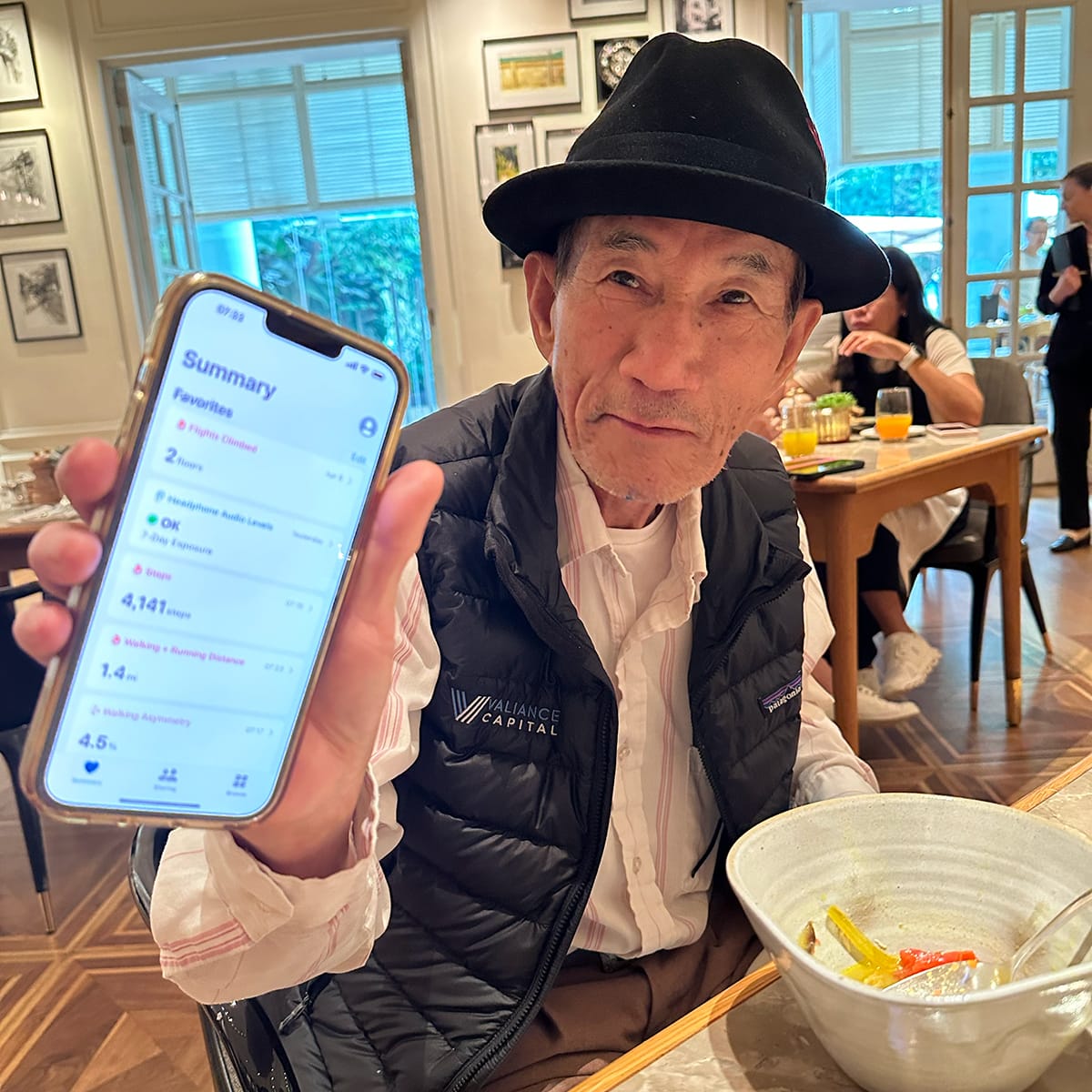
In recent years, Dinh moved to Berkeley to live with Nhan at his Elmwood home, often cooking for his son, making sure they were eating healthy meals.
"I think maybe he was here to keep me company," Nhan said. "It's just me and him."
He described his father as vibrant, gregarious and jovial, always laughing: "the energy in the room."
The two of them explored the world together, eating their way through Japan, Singapore and Vietnam, among other places.
Back in Berkeley, they hosted lively dinner parties for Nhan's friends and colleagues. Dinh always made an impression.
"He liked to shake people's hands firmly, just to show how strong he was to the younger guys," Nhan said.
In May, Dinh attended his first music festival, the massively popular Electric Daisy Carnival in Las Vegas.
"He was probably the oldest guy there," Nhan said. "He was just having a blast with his kids and family. He really wanted to experience life."
His personality and vigor made life more vibrant, more inspiring, for everyone around him, his son said.
In recent days, Nhan said he had spent a lot of time reflecting on his father, beginning with his humble beginnings in Vietnam.
Dinh fled the country in 1981 after the war ended — despite being shot in the leg as he escaped on a boat.
After living for a time on the East Coast, in 1991, Dinh moved to Sacramento with his wife, the sister of a close friend from the war, a fellow soldier whose family Dinh had sponsored to help them get to America.
In Sacramento, they raised their own family, with Dinh launching a landscaping business and his wife painting nails.
"We grew up on food stamps in Section 8 housing," Nhan said, both parents doing everything possible to give their children more opportunities than they had had back home.
"When he came, he had nothing — just the hope of creating a better life for his family," Nhan said. "They didn't speak a lick of English."
Nhan was born first. Two more sons and a daughter followed.
As a child in Sacramento, Nhan recalled going door to door to promote the landscaping business, weighting down his dad's fliers with rocks and tossing them on doorsteps to help spread the word.
"They were hardworking blue-collar people who did everything they could to put food on the table," he said. "They worked six to seven days a week."
Dinh was a devout Catholic, and the family went to church together every Sunday.
His strong faith made an impression on Nhan and his siblings.
"Even in his ICU bed, one of his favorite things to do was listen to prayer music," he said. "Even though he was heavily medicated at the hospital, we put that next to him and believe it calmed him down."
Nhan would eventually move to Berkeley, in 2005, to attend Cal on a full scholarship. Like so many others who fall in love with the city, he ultimately founded a business and never left.
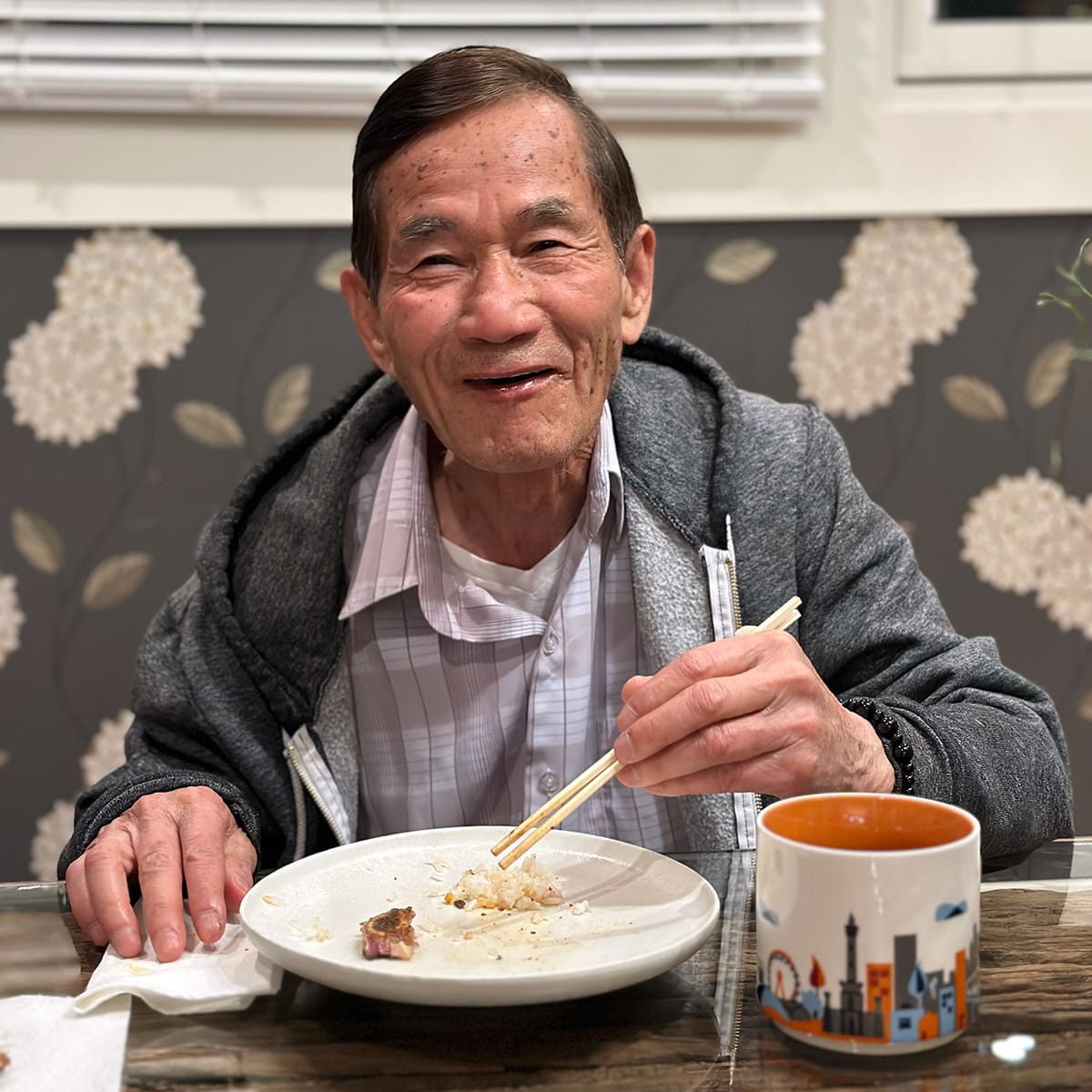
After they became roommates, Nhan recalled how his father often teased him, especially when he thought he looked sad.
Why wasn't he walking more? Why wasn't he married?
"I'm gonna miss that," he said. "I'm gonna miss having him around."
Never one to get angry or upset, he was known for his cheerful quips, whether it was, "family first" or "God first," or "happy wife, happy life."
"I don't think he ever got mad at me," Nhan said, attributing that in large part to his father's faith in God. "That was really special. I think that was such a core part of how he was able to live so peacefully."
On one of their trips to Vietnam, Nhan said they were able to visit the house where his father had hidden for years as he waited to escape after the war.
They saw its dirt floors and Dinh described the banana leaves that used to cover the roof.
"The river he would bathe in was the same place he would get his drinking water," Nhan said. "It was a very difficult journey. He had to leave a lot of family when he left."
When Dinh was in hiding, he was about the same age Nhan is now, he observed.
"It's kind of crazy to think that's what they went through just to get here to America," he said.
Dinh grew up in the ancient coastal city of Hue, once the feudal capital of Imperial Vietnam. His mother died when he was only 3 years old.
But the hardship didn't end there. When Dinh was still a boy, his father was captured by the Communists and put into a detention camp.
Dinh "would have to travel through the jungle three days on foot to try to bring him food," said Nhan. "He would give it to people near the front gate of the camp to try to sneak it in. But he never saw his dad."
He would ultimately learn, after trekking to the camp at age 19, that his father had died.
"The war really had an impact on his childhood," Nhan said. "Because it lasted for decades."
Nhan said it had been particularly meaningful to travel with his father through Vietnam, to meet their relatives and get to ask him so many questions about their family roots and history.
On one of their trips, the family journeyed together to the northern part of the country for the first time in Dinh's life.
"It was a unique experience. Because he didn't know what to feel," Nhan recalled. There was nostalgia, and something more, he remembered his father telling him: "My entire childhood and life was framed by this war, and here I am back with my children to see my country in a different way."
Read more about traffic safety in Berkeley.
Nhan noted that, although his father grew up poor and never made much money, how he lived his life came to represent something much greater.
In the end, he said, everything his father owned fit into his single room at Nhan's home. His father had savings, but it didn't amount to much.
"I still felt he was the richest person I ever knew," Nhan said. "He had everything he needed, everything he wanted, already."
On Sunday, Nhan said it remained difficult to speak about what happened, as the family works to find the difficult balance between honoring him in the community and coming to terms with such a massive loss.
"I want people to know what happened to my dad," he said.


